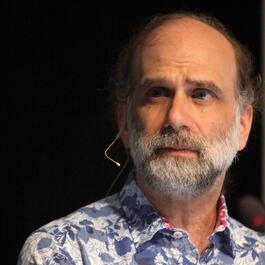
8th Layer Insights
Get ready for a deep dive into what cybersecurity professionals often refer to as the "8th Layer" of security: HUMANS. Welcome to 8th Layer Insights (8Li). This podcast is a multidisciplinary exploration into how the complexities of human nature affect security and risk. Author, security researcher, and behavior science enthusiast Perry Carpenter taps experts for their insights and illumination. Topics include cybersecurity, psychology, behavior science, communication, leadership, and more.
Show episodes
Hey folks! It's been a few weeks, but now the gift is here. :) It's the 7th installment of the "Cognitive Heists" series. This one is titled, "The Trojan Gift." 🎁 Not all traps look like traps. Some arrive with a bow on top. The Trojan Horse is the oldest example. But today, the gift often looks like a free service. N
Some cons don’t succeed because of the smooth-talking seller. Instead, they succeed because of the crowd. Enter The Shill -- a hidden accomplice pretending to be just another customer, audience member, or lucky passerby. They're in the crowd, acting as a 'normal' audience member... all with the goal of bringing validat
Welcome to Deceptive Minds - An audio newsletter about how we are fooled, how we fool ourselves, and what we can do about it. This one is all about "The Long Con." When the lie moves in next door. Not every con kicks down the door. Some knock politely, charm their way inside, and stay for dinner. In this issue , we exp
👻 New Deceptive Minds issue: Cognitive Heist series issue #4 -- The Ghost The ghost doesn’t break in. It doesn’t even exist. It just panics you into acting-- fast, unthinking, exposed. This issue explores one of the most dangerous tools in a scammer’s toolkit: urgency. We unpack: 🧠 The psychology of panic and why urg
📞 The Call Is Coming from Inside Your Mind Welcome to #3 of the "Cognitive Heists" series. The Voice in Your Head -- Authority, Audio Deepfakes, and the Power of a Familiar Voice In 2019, a UK energy firm received a call. The voice on the other end sounded exactly like the CEO of their German parent company. The reque
Welcome to part 2 of the Cognitive Heist miniseries: The Bait Man 🗝️ He doesn’t pick the lock. 🚪 He doesn’t sneak in the back. 🪝 He just leaves something shiny on the ground and waits for you to pick it up. Enter "The Bait Man": the scammer who lets your own curiosity or greed do all the work. Part 2 of Cognitive He




